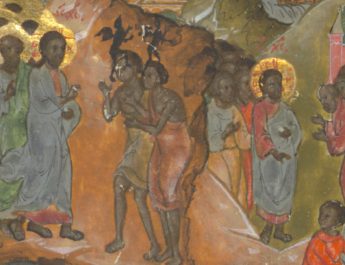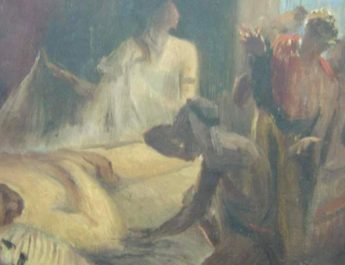Psalm 24:7-10
Presentation of the Lord ABC
7 Lift upA your heads,B O gates!C
and be lifted up, O ancientD doors!E
that the KingF of gloryG may come in.H
8 Who is the King of glory?
The Lord,I strongJ and mighty,K
the Lord, mighty in battle.L
9 Lift up your heads, O gates!
and be lifted up, O ancient doors!
that the King of glory may come in.
10 Who is this King of glory?
The Lord of hosts,M
he is the King of glory. SelahN
Image credit: “The Castle Gate” by Ferdinand Knab, 1881.




